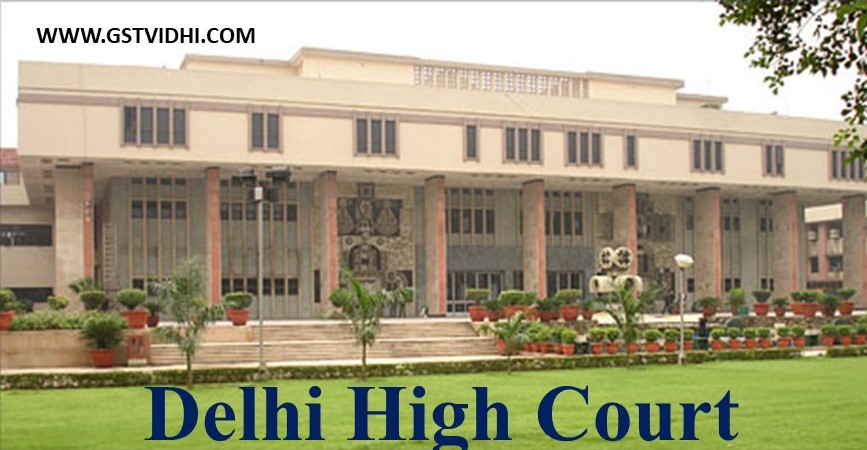
Delhi High Court directs
Triloki Trading to challenge bank account attachment, orders swift disposal of
objections
By Yogesh Verma (CS/LLB) / 2 min read / GST Case Law
Case Title: Triloki Trading vs. Directorate General of GST
Intelligence (DGGI)
Case No.: W.P. (C) 14190/2024
Date of Order: 8th October 2024
Court: High Court of Delhi
Judges: Hon'ble Mr. Justice Yashwant Varma and
Hon'ble Mr. Justice Ravinder Dudeja
Facts of the Case:
Triloki Trading, the
petitioner, challenged an order dated 28th May 2024, issued by the Directorate
General of GST Intelligence (DGGI), which provisionally attached the company’s
bank account under Section 83 of the Central Goods and Services Tax (CGST) Act,
2017. The attachment was made on allegations that Triloki Trading had engaged
in fraudulent activities, including suspicious payments and wrongful availing
of Input Tax Credit (ITC) to the tune of ₹19,37,431.
The petitioner contended
that the provisional attachment was unwarranted and violated the principles
outlined in the Supreme Court's judgment in Radha Krishan Industries vs.
State of Himachal Pradesh & Ors., which emphasized the need for
"extreme care and caution" when exercising the drastic power of
provisional attachment under Section 83 of the GST Act.
Submission by Petitioner:
1. Lack
of Justification for Provisional Attachment:
The petitioner’s counsel, Mr. Kanhaiya Singhal, argued that the impugned order
failed to record any satisfaction by the competent authority regarding the
necessity of the provisional attachment to protect government revenue. The
petitioner contended that there was no material evidence to suggest that the
company was attempting to dispose of its assets to avoid tax collection.
2. Supreme
Court Precedents:
The petitioner cited the Supreme Court’s decision in Radha Krishan
Industries, where it was held that the power of provisional attachment
under Section 83 is a "drastic power" and should only be exercised
when there is concrete evidence that the assessee is trying to frustrate the
collection of taxes. The petitioner argued that there was no such evidence in
their case, and hence, the attachment order was arbitrary and should be set
aside.
Submission by Respondent:
1. Alleged
Fraudulent Payments and Wrongful ITC Claims:
The respondent, represented by Senior Standing Counsel Mr. Anurag Ojha,
defended the provisional attachment, claiming that it was justified due to the
suspicious nature of the payments made by the petitioner and the wrongful
availing of ITC amounting to ₹19,37,431. The respondent argued that such
protective measures were necessary to safeguard government revenue.
2. Provisional
Attachment for Protection of Revenue:
The respondent contended that Section 83 of the CGST Act provides for
provisional attachment when there is a reasonable belief that the taxpayer may
attempt to evade tax by disposing of assets. In this case, the respondent
believed that the attachment was necessary to protect the interests of the
revenue while further investigations were ongoing.
Court's Findings and
Judgment:
1. Power
of Provisional Attachment:
The court referred to the principles laid down in the Radha Krishan
Industries case, reiterating that provisional attachment under Section 83
is an extraordinary power that must be exercised with caution. The court noted
that such an attachment should only be made when there is sufficient material
on record to suggest that the taxpayer is likely to dispose of assets to thwart
tax collection.
2. Failure
to Record Sufficient Justification:
The court observed that the impugned order did not sufficiently justify the
need for the provisional attachment. The court found that the order lacked any
recorded satisfaction by the competent authority that the attachment was
necessary to protect government revenue, as required by law. The absence of
material evidence to support the attachment raised concerns about the fairness
of the action taken against the petitioner.
3. Application
of Rule 159 of CGST Rules:
The court pointed out that under Rule 159 of the CGST Rules, 2017, the
petitioner had the right to file objections and seek revocation of the
provisional attachment. The rule outlines the procedure for attaching property
and provides a framework for taxpayers to challenge the attachment.
4. Directions
to File Objections:
In light of the lack of justification for the attachment, the court granted the
petitioner the liberty to file an application for the revocation of the
provisional attachment under Rule 159 within one week. The court directed the
respondent to examine the application and dispose of it in accordance with the
law within two weeks.
5. Retention
of Rights and Contentions:
The court emphasized that all rights and contentions of the parties on the
merits of the case were kept open for future adjudication. The court's order
did not preclude the parties from pursuing their respective legal arguments
during the revocation process or subsequent proceedings.
Conclusion:
The High Court of Delhi
disposed of the writ petition by allowing the petitioner to file objections
under Rule 159 of the CGST Rules, challenging the provisional attachment of its
bank account. The court directed the respondent to examine and dispose of the
petitioner’s application within two weeks. The order reiterated the importance
of justifying provisional attachments and complying with the procedural
safeguards outlined in the GST law.
Disclaimer: All the Information is based on the notification, circular and order issued by the Govt. authority and judgement delivered by the court or the authority information is strictly for educational purposes and on the basis of our best understanding of laws & not binding on anyone.
Find the Attachment (Press on Click Here )
Click here